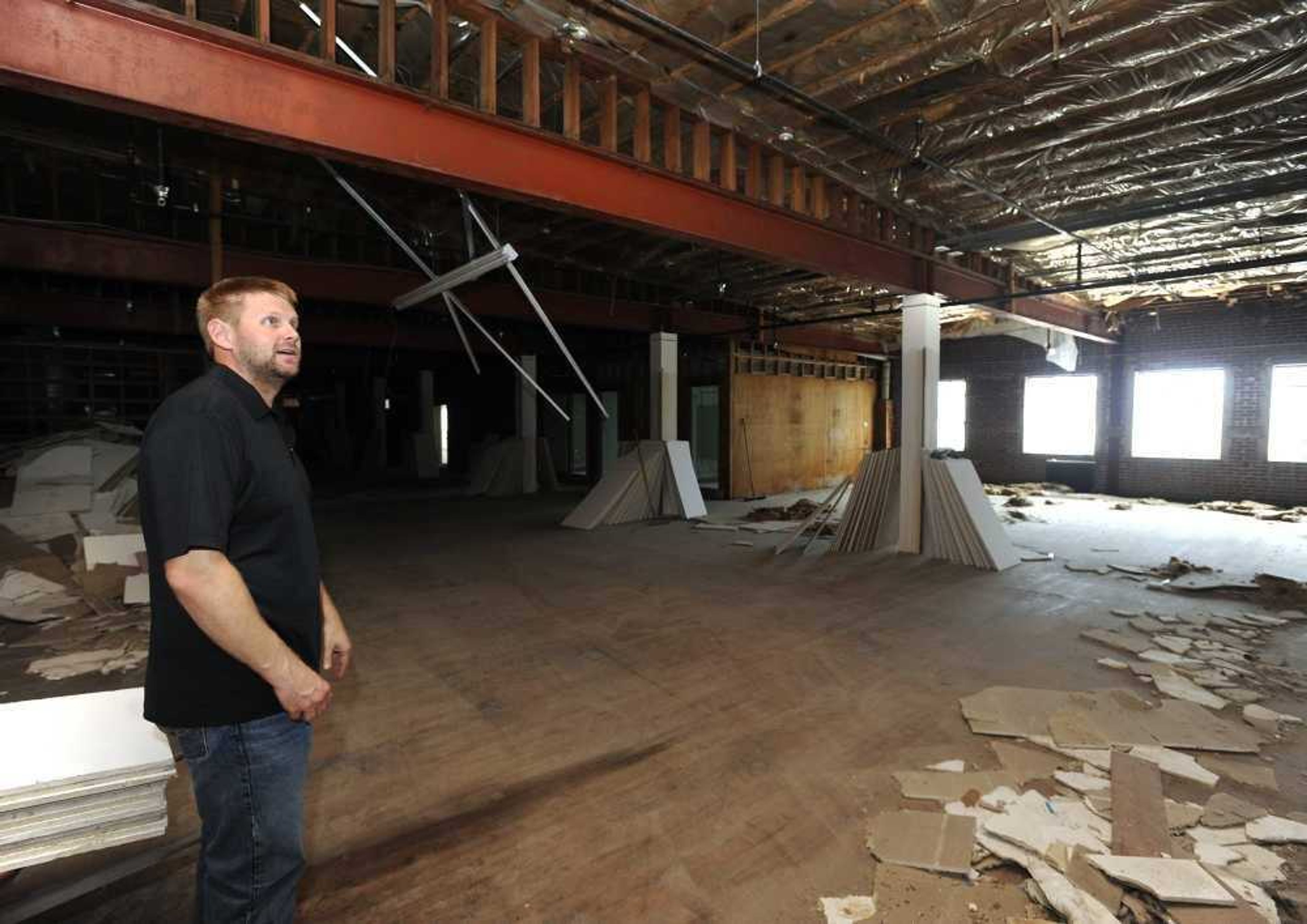Developers drop downtown TIF project for now: 'Timing is just not right'
A proposed Cape Girardeau downtown redevelopment project, which involved tax-increment financing (TIF), has been dropped for now. The City Council is scheduled to vote Monday on a measure to dissolve a special fund for the project so any future development in the TIF district would be able to recover costs for 23 years as allowed under state law...
A proposed Cape Girardeau downtown redevelopment project, which involved tax-increment financing (TIF), has been dropped for now.
The City Council is scheduled to vote Monday on a measure to dissolve a special fund for the project so any future development in the TIF district would be able to recover costs for 23 years as allowed under state law.
Council members approved the downtown TIF district project to redevelop two buildings on Main Street in June 2017, which set in motion the opportunity for the developers to be reimbursed for some project costs.
As part of the agreement, the city required the development to be completed by the end of 2019.
But the $4.59 million project never moved forward.
Unfortunately that one didn't work out," city development services director Alex McElroy said.
The plan called for tax reimbursements of up to $1.54 million over 23 years.
No funds were deposited in the special fund, since the project never started. If money were in the fund, it would have been returned to the appropriate taxing entities, McElroy said.
Dissolving the fund won't preclude the developers from "participating again in a TIF project in that area," he said.
Developer Jason Coalter said, "By us rescinding our TIF request, the clock gets to start over at 23 years for anybody else,"
Under Missouri law, once a TIF development is approved, the time period starts. Any other development in the same TIF district would only be able to receive tax funding for the number of years remaining in the time period.
Coalter and Dustin Richardson of Centurion Development LLC proposed two years ago to redevelop a vacant building, the former F.W. Woolworth store, at 1 N. Main St. and another structure at 20 N. Main St.
Redevelopment plans called for establishing a restaurant and an organic market in the old Woolworth building, which closed its doors in 1977.
The second floor was envisioned to house lofts or apartments. A rooftop bistro or pavilion would have a view of the Mississippi River bridge.
But when the manager for the project died suddenly, Coalter said the redevelopment plan was put on hold.
He said, "I hate that we have not moved forward, but it was just the right thing to do and not force this project right now."
Two years ago, city officials said redevelopment of the two buildings would increase the assessed valuation, prevent further deterioration of the structures and enhance the economic viability of the downtown area.
Under the agreement, Centurion would have received 95% of the increased property taxes and nearly 50% of the increased city sales-tax revenue resulting from the development while the TIF was in effect.
In addition to existing tax revenue generated from the properties before redevelopment, the city would receive the remainder of the increased sales and property taxes. That increased tax revenue could be used for future public projects, deputy city manager Molly Mehner said at the time.
After 23 years, the city would have benefited from all of the added sales and property tax revenue.
Coalter said they still plan "to do something" with the buildings and could reapply for tax-increment funding.
"We still love the concept," he said of the proposed development.
"Whatever we do," Coalter said, "we want to do the best of our ability and timing is just not right at this point."
Do you like stories about government and courts? Keep up with the latest news by signing up for our daily morning headline email. Go to semissourian.com/newsletters to find out more.
Connect with the Southeast Missourian Newsroom:
For corrections to this story or other insights for the editor, click here. To submit a letter to the editor, click here. To learn about the Southeast Missourian’s AI Policy, click here.











